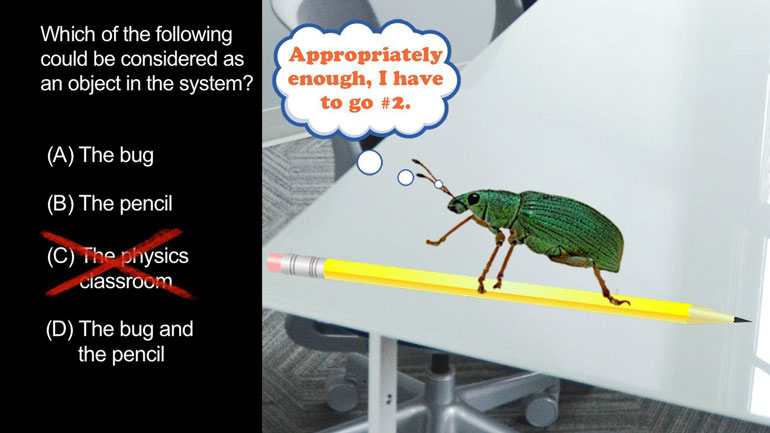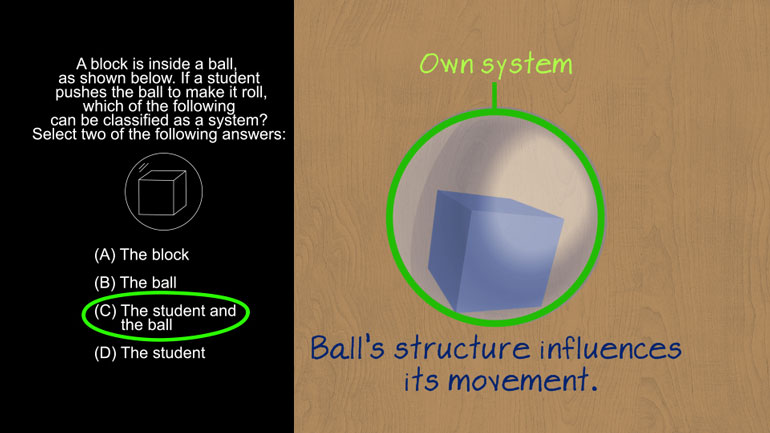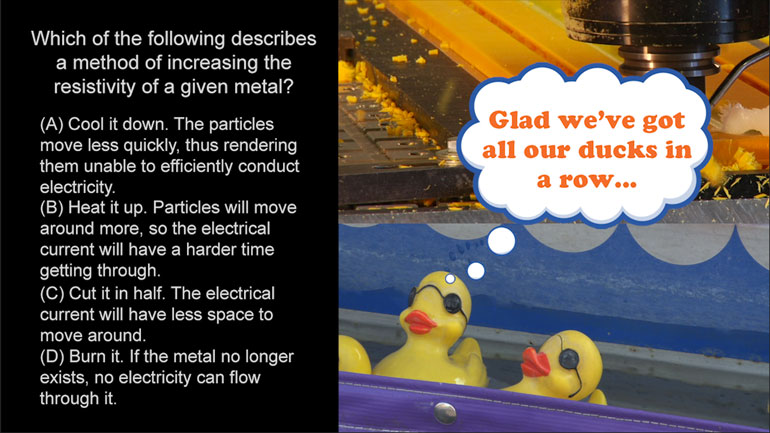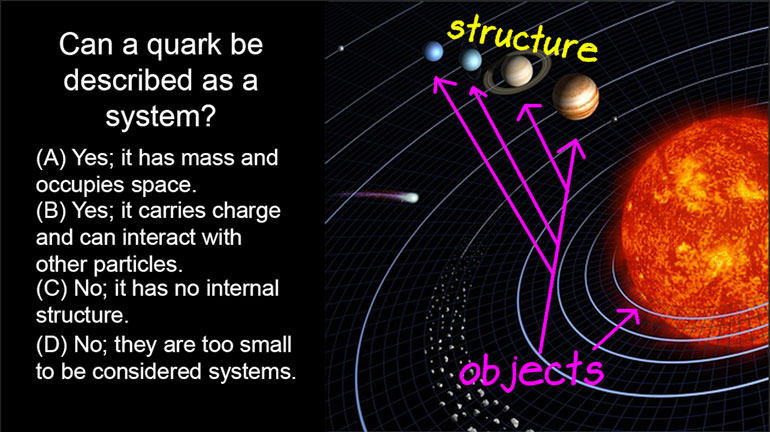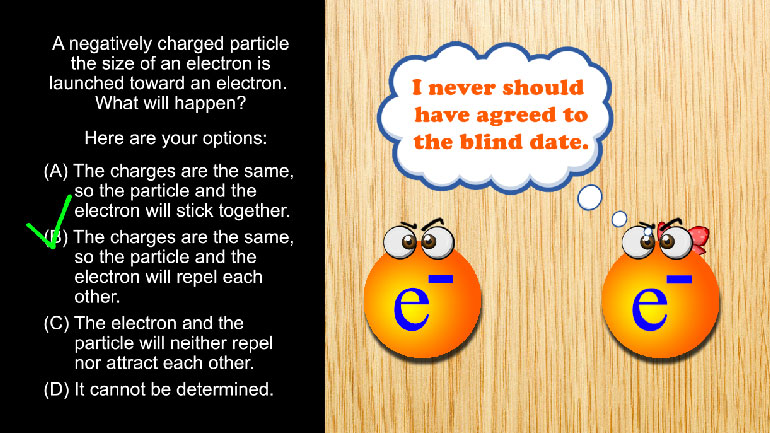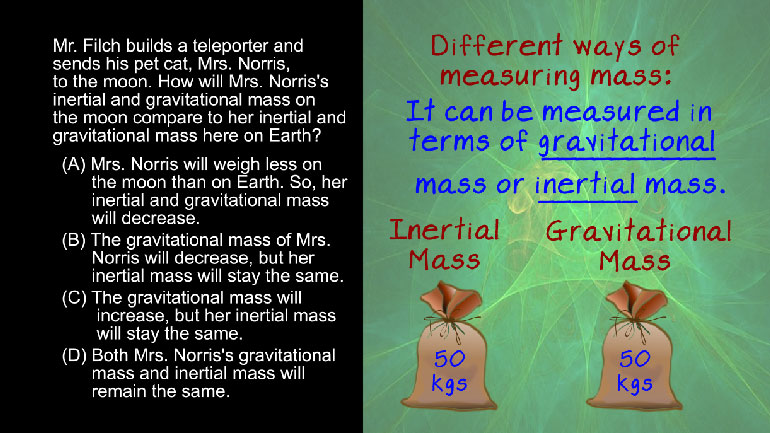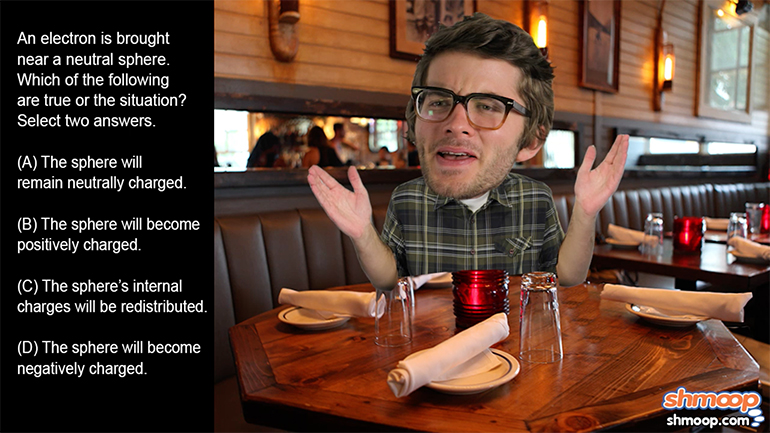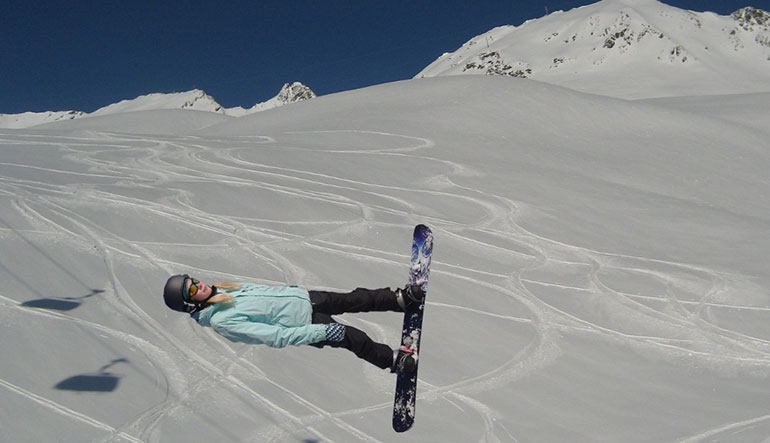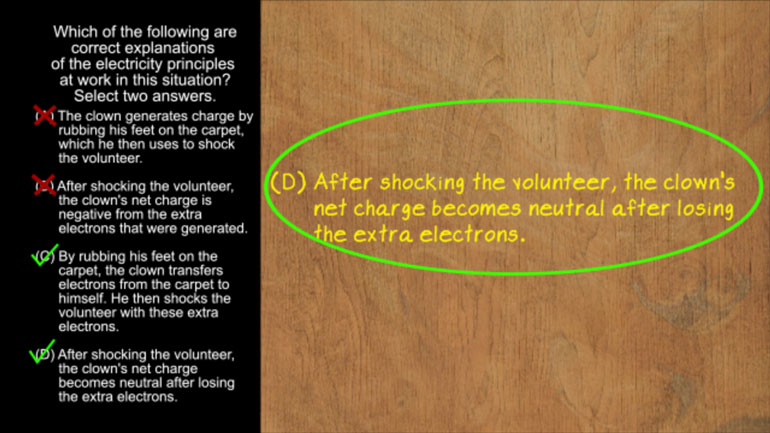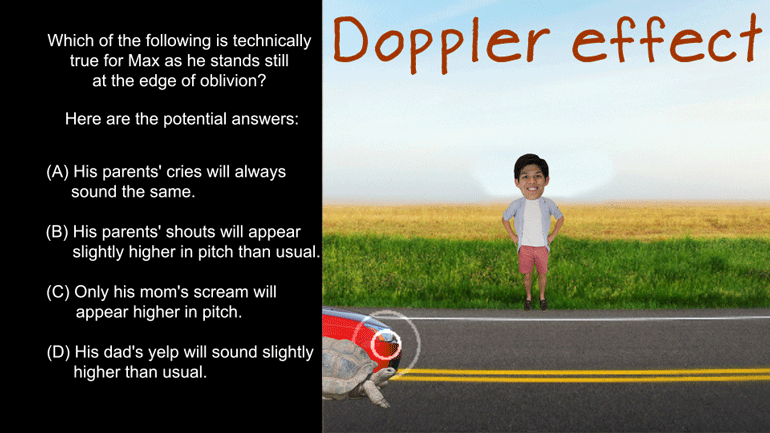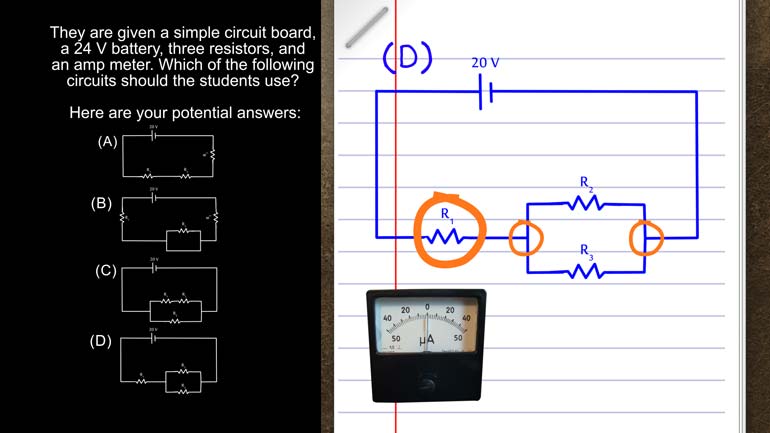ShmoopTube
Where Monty Python meets your 10th grade teacher.
Search Thousands of Shmoop Videos
Playlist AP® Physics 1: Properties of Objects and Systems 13 videos
AP Physics 1: Properties of Objects and Systems Drill 1, Problem 1. Which of the following could be considered as an object in the system?
AP Physics 1: 1.4 Properties of Objects and Systems. What is the difference between inertial and gravitational mass?
AP Physics 1: 1.5 Properties of Objects and Systems. Which of the following can be classified as a system?
AP Physics 1: 2.1 Properties of Objects and Systems 235 Views
Share It!
Description:
We know you're resisting studying for your AP Physics test. You should at
least
find out how to increase your resistance so you'll never have to study again!*
*We don't really mean that. You should definitely keep studying. We're strong advocates of studying. And puppies. And burritos. Anyhoo. Keep studying!
Transcript
- 00:00
Sorry Then here's your shmoop du jour brought to you
- 00:05
by resistance it's an important concept in physics and in
- 00:09
parents especially when you're learning how to drive like that
- 00:14
All right which of the following describes a method of
- 00:16
increasing the resisted ity of a given medal and here
Full Transcript
- 00:21
the potential answers can cool down Heated up burn It
- 00:25
sounds like dating All right so what is resisted ity
- 00:29
well before we get ahead of ourselves let's start with
- 00:31
this matter Allows for the passage of charge after all
- 00:36
that's how electricity gets from the power plant to your
- 00:38
house It's passes through wires to get there But some
- 00:42
materials like rubber or plastic are highly resistant to charge
- 00:47
that's Why Power lines have special insulation that make sure
- 00:50
the electricity and stays in the wires Gold leak out
- 00:53
play with birds World's love that insulation here All right
- 00:57
so how can you make something mohr resistant to electricity
- 01:01
Well everything is made up of little particles right Protons
- 01:05
neutrons electrons which make up atoms which make up molecules
- 01:09
which make up bigger things like a wire or are
- 01:12
gorilla And even though a length of wire might look
- 01:16
like it's just sitting there while the particles inside of
- 01:18
it are vibrating Why Because that's what particles do for
- 01:22
a living They have to move just like us You
- 01:25
know when our favorite song in a solid like a
- 01:28
metal wire the particles air tightly packed and attracted to
- 01:31
each other So they're not bouncing around freely like they
- 01:34
do in a gas But and this is a big
- 01:37
but which we like and cannot lie There is still
- 01:40
motion going on now Electricity is basically a stream of
- 01:43
electrons And when that stream flows through a material it
- 01:47
has to get past all those vibrating particles If the
- 01:50
electrons bump into the vibrating particles they won't make it
- 01:53
all the way through and the charge will be diminished
- 01:56
if the material is highly resistive That means it's harder
- 02:00
for electricity to find its way through it So how
- 02:03
can you increase the resisted ity of a material while
- 02:06
you make its particles vibrate faster And how do you
- 02:09
make the particles move faster Well you heat it up
- 02:12
because the heat energy excites the particles Think of a
- 02:16
room full of preschoolers if you cool a material down
- 02:19
that's Like nap time for the little kids everything is
- 02:22
calm but adding heat is like giving the toddler's a
- 02:25
handful of candy filled with sugar We're gonna bounce all
- 02:28
over the place so are correct answers Option b heating
- 02:31
a material up increases resistive ity option a has it
- 02:35
completely backward Cooling a material reduces its resistance C doesn't
- 02:39
work either Reducing the quantity of something doesn't affect how
- 02:42
resistant it is Andy isn't really about resistive ity at
- 02:46
all If you destroy something by burning it it no
- 02:49
longer has any resistive ity and as for parents well
- 02:52
studying wish mum maybe one way to reduce resistance in 00:02:55.453 --> [endTime] them Oh yeah
Related Videos
AP Physics 1: 2.5 Changes and Conservation Law. At what point(s) in this situation is energy lost in any form?
AP Physics 1: 1.4 Waves. Which of the following is technically true for Max as he stands at the edge of oblivion?
AP Physics 1: 1.4 Changes and Conservation Laws. Find the current across R2.
AP Physics 1: 2.4 Changes and Conservation Laws. Which of the following circuits should the students use?
AP Physics 1: 1.5 Waves. What can possibly occur when the two waves reach each other?
